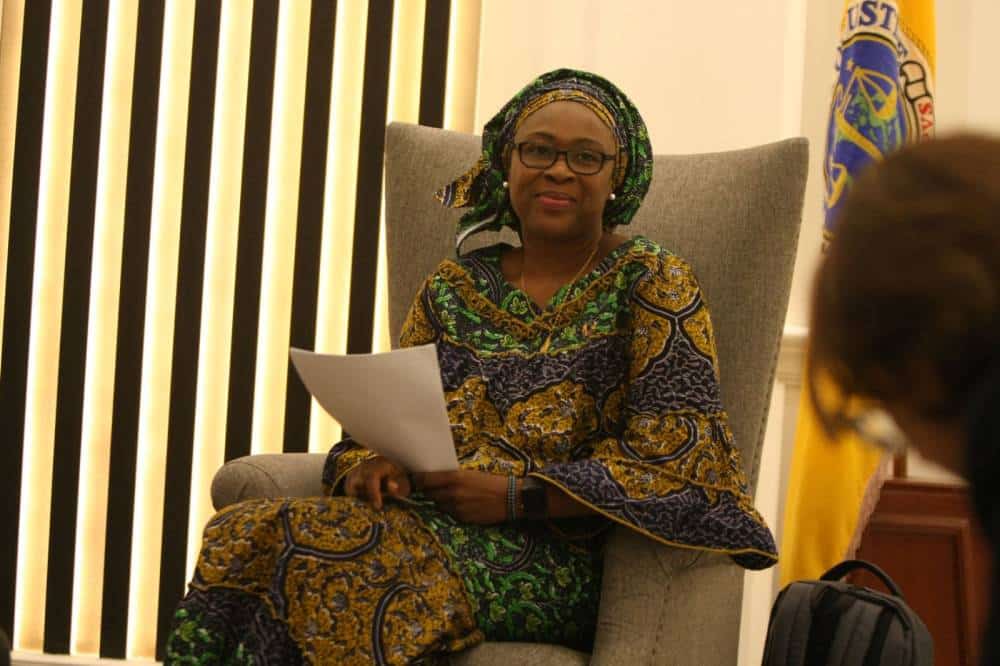PH still hotspot for child trafficking, sexual exploitation — UN rapporteur – Manila Bulletin
The Philippines remains as a hotspot of child trafficking for sexual exploitation although the government has already made progress in crafting policies and framework to protect its victims, a United Nations (UN) special rapporteur said.
Based on her preliminary investigation on the issues of sale and exploitation of children in the Philippines, UN expert Mama Fatima Singhateh said the country is still the world's “source and destination country” for child trafficking, sexual abuse, forced marriage and forced labor.
There is also underreporting of related incidents as well as “limited information” on its scale, she added.

Juan Carlo de Vela/MB
While she noted some of the country's “positive developments in the ambit of legal framework” as well as approach in protecting the children, she made various recommendations to address such a problem, including by strengthening the justice system, establishing child protection units and providing holistic approach for the care and reintegration of the victims.
“I am encouraged by the significant efforts made and work undertaken by the government over the past few years. I am also hopeful that the efforts will be advanced further subsequent to my visit,” she said in a press conference on Thursday.
Cases
Among child trafficking cases Singhateh noted in the country is the prevalence of sham marriages or fake marriages among the indigenous and ethnic communities as well as among children belonging to minority groups.
Some of these marriages, she said, lead children to sexual exploitation, forced labor or financial exploitation.
“While both girls and boys are affected by the practice of child marriage, girls, however, face disproportionate impact,” she said.
The UN rapporteur also noted the occurence of sexual exploitation in the context of travel and tourism.
She lamented that explicit legal provision “is lacking in the laws to penalize” such an act and that officials in the tourism sector “do not appear to have adequate information” on this issue.
Illegal adoption, teenage pregnancy outside marriage, sexual abuse among intersex children during the course of health interventions are also among other things concerning in the country, Singhateh added.
Recommendations
For child trafficking, the rapporteur recommended that the law must have a distinction between the sale of children and child trafficking with the optional protocol on sale of children, child prostitution and child pornography.
She made the suggestion as she noted that “a small number of cases of sale and sexual exploitation are reported, which is suggestive of underreporting and under identification of victims.”
She also said the government must focus on the implementation of the anti-child marriage law and place some measures to prevent it. Same strategy goes for illegal adoption, which occurs despite the adoption law.
Tourism officials must be required as well to have an extensive training and sensitization on sexual exploitation of children in the context of travel and tourism, Singhateh added.
An establishment of a children's home dedicated to accommodate and care for the victims is also as necessary as the establishment of a child protection unit within the prosecution department.
This, as she said, child-related cases are brought before the family court.
“This deprives the child of a specifically-trained educator and slows down the Justice delivery system,” she said.
“Because all judges in the family court hear all cases including child abuse cases, it also creates inconsistencies in the hearing and adjudication of child protection cases, depending on the temperaments or the skills of the educator,” she added.
Authorities must also increase their attention “to abuses that are not associated with ICT-detection of crimes” as it seemed that “many reports of sexual abuse and exploitation are through workings or tip offs.
“I have received no information of any surveillance that were conducted on the initiative of the police or patrols in neighborhoods,” she said.
“I am concerned that local governments and politics negatively impact the child protection structures at the local level due to the regular changes of personnel and officials who may have received training on child protection, but the turnover rates do not retain their expertise,” she added.
Singhateh presented her preliminary findings on the issue of sale and exploitation of children in the country following an 11-day visit to the Philippines upon the invitation of the government.
This “Eyes on Trafficking” story is reprinted from its original online location.
 ABOUT PBJ LEARNING
ABOUT PBJ LEARNING
PBJ Learning is a leading provider of online human trafficking training, focusing on awareness and prevention education. Their interactive Human Trafficking Essentials online course is used worldwide to educate professionals and individuals how to recognize human trafficking and how to respond to potential victims. Learn on any web browser (even your mobile phone) at any time.
More stories like this can be found in your PBJ Learning Knowledge Vault.
EYES ON TRAFFICKING
This “Eyes on Trafficking” story is reprinted from its original online location.
ABOUT PBJ LEARNING
PBJ Learning is a leading provider of online human trafficking training, focusing on awareness and prevention education. Their interactive Human Trafficking Essentials online course is used worldwide to educate professionals and individuals how to recognize human trafficking and how to respond to potential victims. Learn on any web browser (even your mobile phone) at any time.
More stories like this can be found in your PBJ Learning Knowledge Vault.
